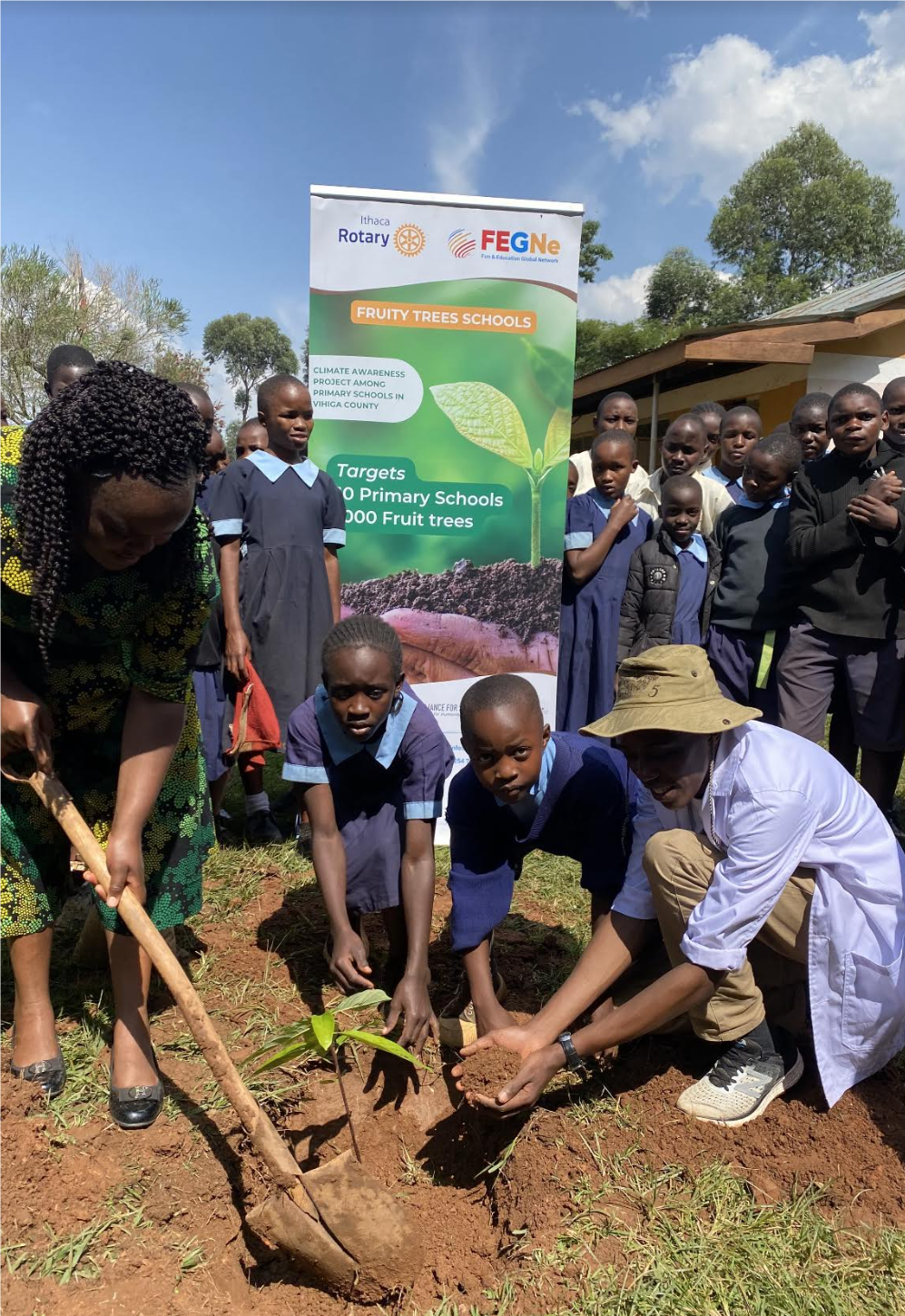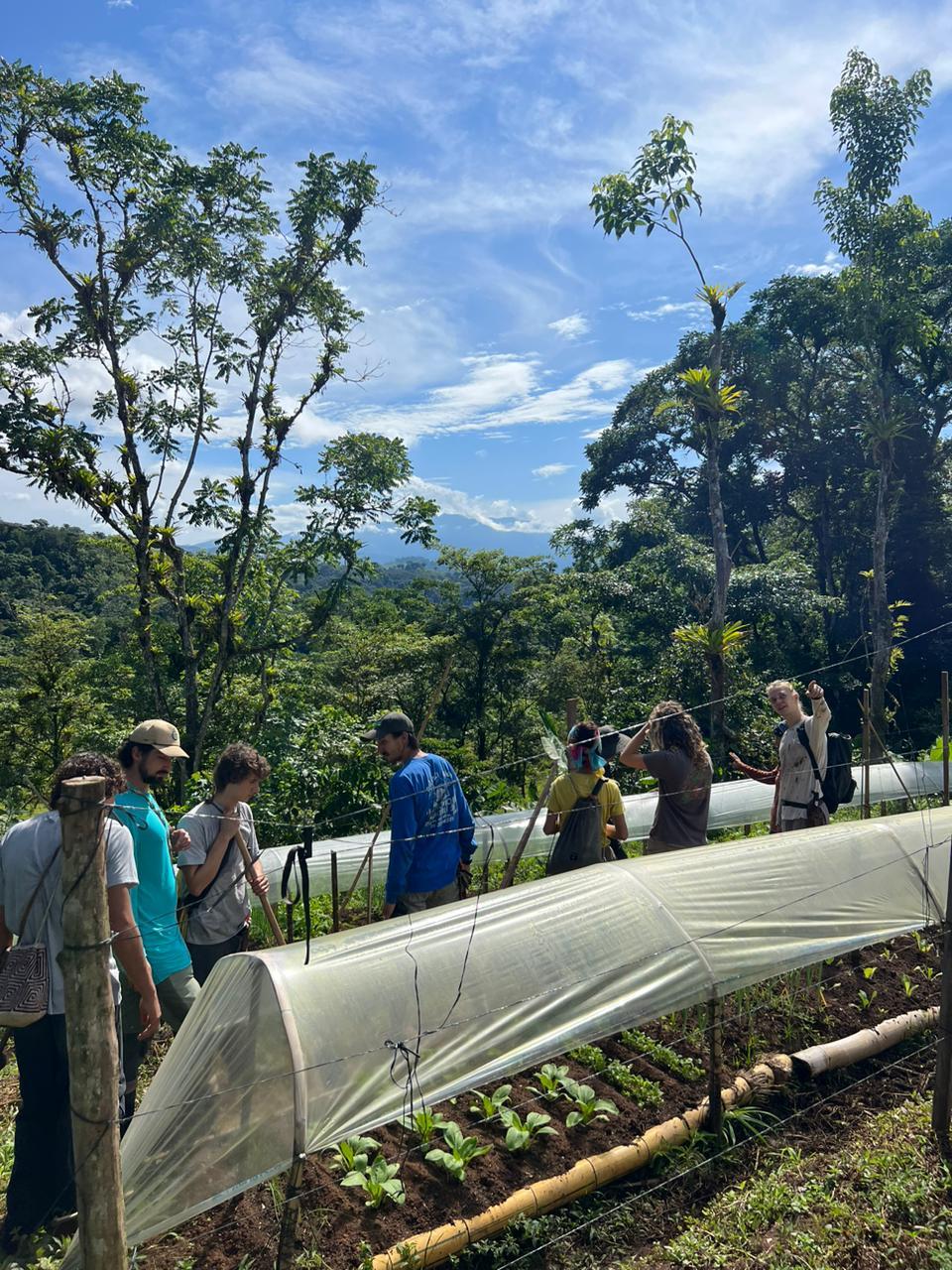
The Ithaca Rotary Club has awarded two $5,000 grants to nonprofit groups in Kenya and Costa Rica for projects that will tackle climate change.
Science Centre Kenya has used the grant to plant 1,250 fruit trees at 10 schools and teach an estimated 2,500 children about agriculture and climate change. The project will also help alleviate increasing food insecurity in the western part of the country.
In Costa Rica, the Mastate Charitable Foundation is developing a family-run fruit tree and vegetable farm that demonstrates a new model for food production, which reduces the reliance on agricultural chemicals while drawing carbon from the atmosphere.

“We wanted this year’s projects to demonstrate how even small investments in the mitigation of climate change can have a big impact on the local level,” said Nancy Potter, cochair of the Ithaca Rotary Club’s International Services Committee, which selected the nonprofits that received the grants.
Charlie Trautmann, former director of the Sciencenter in Ithaca, helped develop the application for the project in Kenya with Kenneth Monjero, director of the Science Centre Kenya, whom he met at a conference in South Africa ten years ago.
Monjero said he used the Rotary grant to mobilize parents of children at the schools to donate an additional 1,250 trees, bringing the total number planted to 2,500. “This wouldn’t have happened without the Rotary funding,” Monjero said.
“It ignited the interest and now the students understand what climate change is all about.”
The carbon dioxide that will be captured by the trees is the equivalent of the greenhouse gases emitted by 25 cars a year. “It’s not thousands of cars, but it’s something,” Trautmann said. “The more important aspect is that children will be learning about the environment and taking care of the environment.”
The trees, including guava, avocado, mango and passion fruit, will take three to six years to harvest and will provide up to 25 years of fruit production.
In Costa Rica, the farm project was proposed by Tim O’Hara, a 1991 graduate of Cornell’s College of Agriculture and Life Sciences. O’Hara and his wife moved to Costa Rica 22 years ago and started Rancho Mastatal, which offers workshops on permaculture design, conservation, sustainable food production and natural building.
O’Hara said Costa Rica is losing its food security and degrading its farmland by using more agricultural chemicals per capital than any other country on earth. While large-scale agricultural production is causing deforestation, he said, small farms can sustain the health of the soil and remove carbon dioxide from the atmosphere.
The project to develop a family-run fruit tree and vegetable farm in this Central American country will demonstrate a model for farmers who want to transition to crops that require less agricultural chemicals and that pull carbon from the air. When it is completed by the end of this year, the farm will increase the availability of locally grown organic produce, including avocados, plantains, mangos, jackfruit and citrus.
“We hope that this project may encourage other young farmers in our region to develop projects to meet our community’s desire for local produced food while helping to build a model of rural regenerative practices in the tropics,” O’Hara said.
Rotary’s motto is “Service Above Self.” Membership to the Ithaca Rotary Club is open to all community members who share in this belief and new members are accepted year-round.
Ithaca Rotary gathers every Wednesday at 12 p.m. for meetings at Coltivare, 235 S. Cayuga St., Ithaca. The public is welcome to attend and learn more about Rotary.